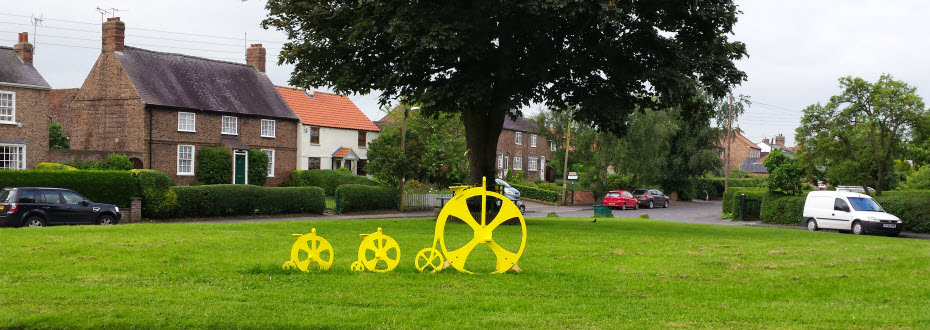CODE OF CONDUCT FOR THE MEMBERS OF
TOLLERTON PARISH COUNCIL
Tollerton Parish Council (“the Authority”) has adopted the following Code for the purposes of Section 27(2) of the Localism Act 2011 dealing with the conduct that is expected of Members of the Authority when they are acting in that capacity.
The Code is intended to be consistent with the following seven principles, and should be read in the light of those principles, namely that Authority Members will act with selflessness, integrity, objectivity, accountability, openness, honesty and leadership.
- You must treat others with respect.
- You must not intimidate or attempt to intimidate any person.
- You must not do anything which compromises or is likely to compromise the impartiality of anyone who works for or on behalf of the Authority.
- You must not conduct yourself in a manner which could reasonably be regarded as bringing the Authority, or your office as a Member of the Authority, into disrepute.
- You must not use or attempt to use your position as a Member improperly to confer on or secure for yourself or any other person any advantage or disadvantage and this includes discussing with other Members any matter in which you have a disclosable pecuniary interest.
- If you are in receipt of any gift or hospitality which is attributable to your membership of the Authority and is of a value in excess of £25, or any offer of any such gift or hospitality, you must disclose this to the Monitoring Officer; and you must decline to accept any such gift or hospitality which could reasonably be perceived as creating an obligation upon the Authority, or upon yourself as a Member of the Authority.
- You must not knowingly prevent, or attempt to prevent, another person from gaining access to information to which they are entitled by law.
- You must not disclose information which is given to you in confidence, or information which you believe or ought reasonably to be aware is of a confidential nature, unless:
- You have the consent of a person authorised to give it; or
- You are required by law to do so; or
- The disclosure is made to a third party for the purpose of obtaining professional advice, provided that the third party agrees not to disclose the information to any other person; or
- The disclosure is reasonable, in the public interest, made in good faith, and made in compliance with the reasonable requirements of the Authority.
- Where, as a Member of the Authority, you have been involved in making any decision which is subsequently subject to scrutiny within the Authority, you must not take part in the scrutiny process. In this paragraph, “scrutiny” means the formal examination by the Authority, a Committee of the Authority, or a group of people including Members of the Authority, of a policy or decision previously approved or taken by or on behalf of the Authority, in order to reach a view on its rectitude, efficacy, performance or value for money. For the purposes of this paragraph, you do not take part in a scrutiny process if you simply offer evidence or opinion to the scrutiny body, and do not participate in its decision.
- Subject to paragraph 11, you must register in the Authority’s Register of Members’ Interests information regarding your personal interests. In this Code of Conduct “your personal interests” means any disclosable pecuniary interest as defined by statutory regulations in force from time to time.
- You must register information regarding your personal interests by giving written notice to the Monitoring Officer, who maintains the Register; and you must give such notice in accordance with any statutory regulations.
- Where you consider that disclosure of the details of any of your disclosable pecuniary interests could lead to you, or a person connected with you, being subject to violence or intimidation, you may so inform the Monitoring Officer; and if the Monitoring Officer agrees, a note will be made in the Register to the effect that you have a disclosable pecuniary interest, details of which are withheld under Section 32 of the Localism Act 2011.
- You must comply with any Standing Order or Procedure Rules adopted by the Authority which requires Members to leave the room during any meeting at which a matter in which they have a disclosable pecuniary interest is being discussed.
1 July 2012





